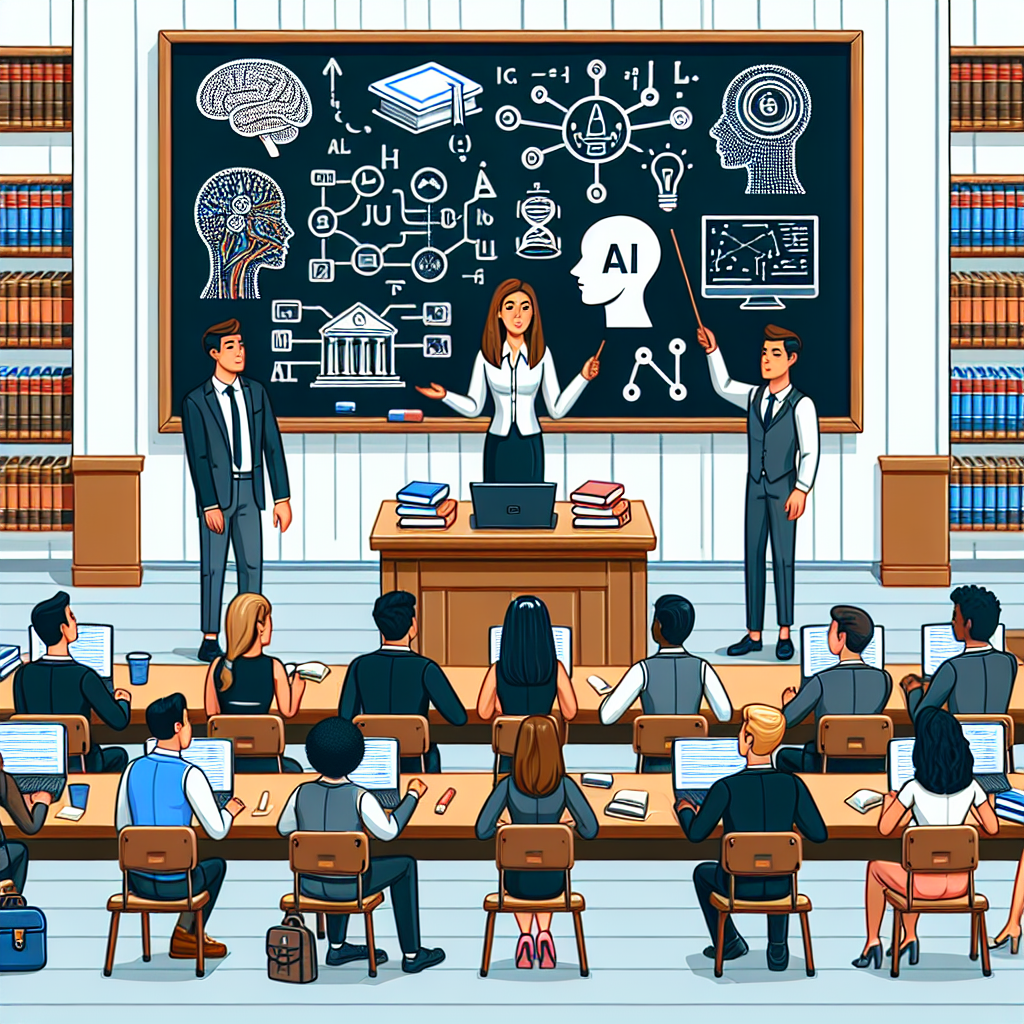The legal industry is experiencing a significant transformation due to the integration of artificial intelligence (AI) technology. As law firms and legal departments continue to adopt AI tools for various tasks such as document review, contract analysis, and legal research, it is becoming increasingly important for law schools to prepare their students for the future of legal practice.
The future of legal education lies in integrating AI into law school curricula to ensure that future lawyers are equipped with the skills and knowledge needed to thrive in a technology-driven legal landscape. By incorporating AI into their programs, law schools can better prepare their students for the challenges and opportunities that lie ahead in the legal profession.
One of the key benefits of integrating AI into legal education is that it allows students to gain hands-on experience with the technology that is becoming increasingly prevalent in the legal industry. By working with AI tools in the classroom, students can develop the skills needed to effectively use these technologies in their future legal careers.
Additionally, incorporating AI into law school curricula can help students develop a deeper understanding of the ethical and regulatory implications of using AI in the practice of law. As AI technology continues to advance, it is important for future lawyers to have a solid understanding of the ethical considerations involved in using AI tools to make legal decisions.
Furthermore, integrating AI into legal education can help students develop critical thinking and problem-solving skills that are essential for success in the legal profession. By working with AI tools in the classroom, students can learn how to analyze complex legal issues and make informed decisions based on the data provided by AI systems.
Overall, integrating AI into law school curricula is essential for preparing future lawyers for the challenges and opportunities that lie ahead in the legal profession. By giving students hands-on experience with AI tools, helping them develop a solid understanding of the ethical implications of using AI in law practice, and fostering critical thinking and problem-solving skills, law schools can ensure that their graduates are well-prepared to succeed in a technology-driven legal landscape.
FAQs
Q: What is artificial intelligence (AI) in the context of legal education?
A: AI refers to the development of computer systems that can perform tasks that typically require human intelligence, such as learning, reasoning, problem-solving, and decision-making. In the context of legal education, AI technology can be used to enhance the learning experience for students by providing them with tools and resources that can help them develop the skills needed to succeed in the legal profession.
Q: How can AI be integrated into law school curricula?
A: AI can be integrated into law school curricula in a variety of ways, such as through the use of AI tools and platforms for legal research, document review, and contract analysis. Additionally, law schools can offer courses and workshops that focus on the ethical and regulatory implications of using AI in the practice of law, as well as the development of critical thinking and problem-solving skills through hands-on experience with AI technology.
Q: What are the benefits of integrating AI into legal education?
A: Integrating AI into legal education can help students develop the skills and knowledge needed to thrive in a technology-driven legal landscape. By working with AI tools in the classroom, students can gain hands-on experience with the technology that is becoming increasingly prevalent in the legal industry. Additionally, integrating AI into law school curricula can help students develop a deeper understanding of the ethical and regulatory implications of using AI in the practice of law, as well as critical thinking and problem-solving skills essential for success in the legal profession.

